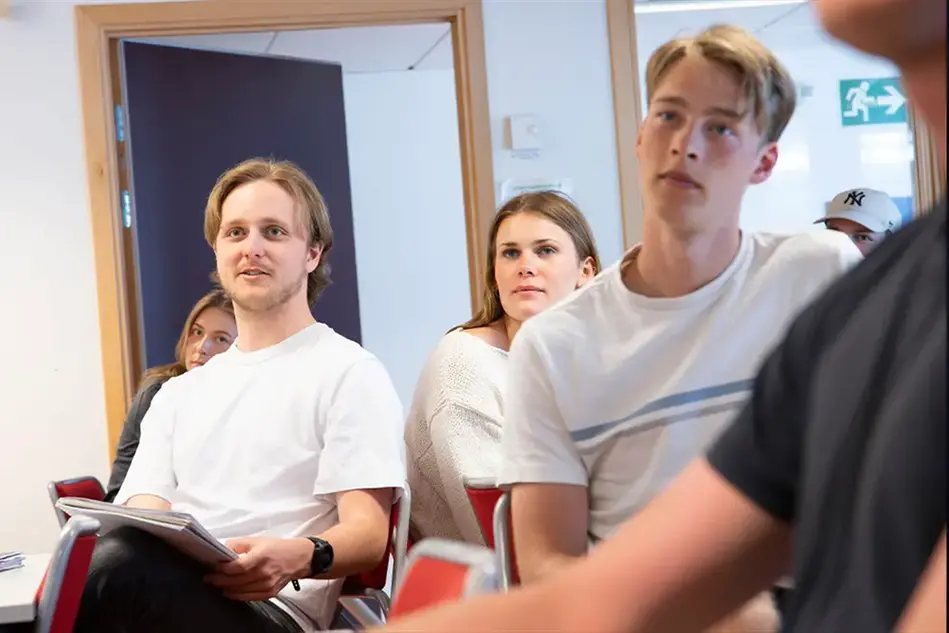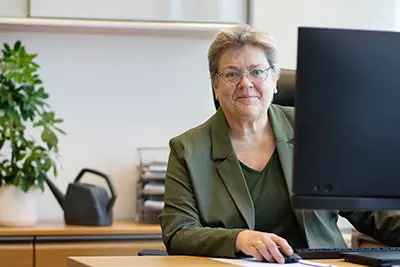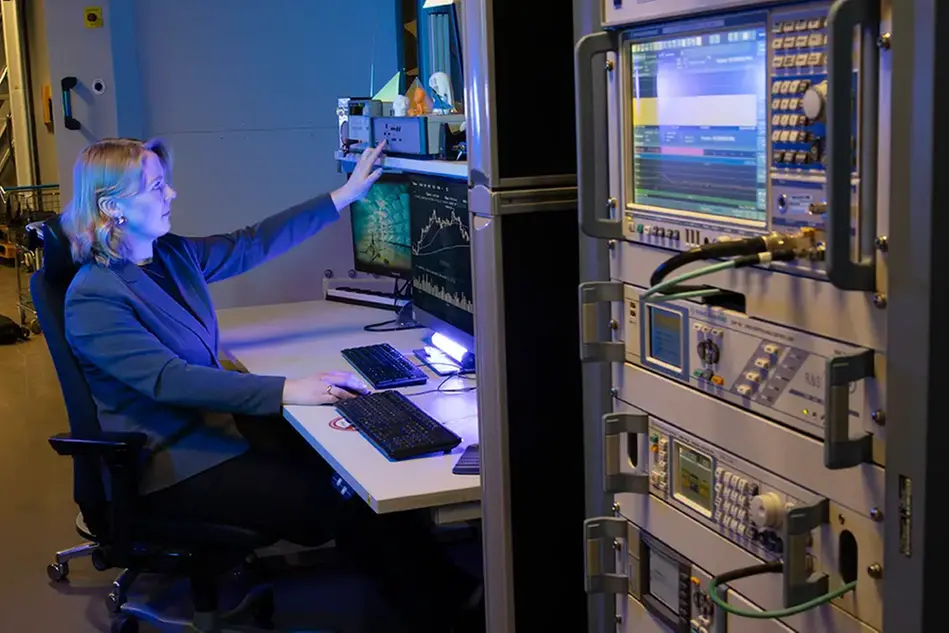Strong development for the University despite challenges
Halmstad University had a solid development last year, with both a record number of applicants for educational programmes and positive results in a comprehensive research evaluation, despite financial challenges. This is how last year can be summarised when the University has submitted its annual report for 2024.
“It feels good to be able to present an annual report that shows that we have a strong organisation with a positive development.”
Susanna Öhman, Vice-Chancellor

The University’s strength lies in attractive educational programmes with great relevance to society, and in research that builds its strength and profile through close collaboration with companies and public organisations. It is a recipe for success that has been developed and defined over the years.
The number of applicants per place increased significantly last year, with seven per cent more first-choice applicants compared to the year before. The IT Forensics and Information Security programme came in first place with 367 applicants, followed by the Social Work programme and the programme in Business and Economics.

The University takes great social responsibility for the educational programmes where shortages have been specifically identified in public service agreements and budget bills since 2014, which is to say programmes for engineers, teachers and nurses, and since 2020 also social work programmes and beginner programmes in computing/IT.

The University’s Vice-Chancellor, Susanna Öhman.
“Further examples of societal relevance are the University’s successful efforts for professional development in the public sector and industry, where I would particularly like to mention all the courses that we offer to professionals”, says Vice-Chancellor Susanna Öhman.
Excellent research
Last year, all research and collaboration at the University was evaluated. The evaluation is called ARC24 and was carried out by external assessors, both national and international. In their reports, the assessors write that all of the University’s research areas are of good quality, and several areas exhibit very good or even excellent quality. The University’s collaboration with external partners and research within AI and health are particularly highlighted.
For ten years now, the University has had two university-wide focus areas to inspire multidisciplinary research: the focus area Health Innovation, and the focus area Smart Cities and Communities. The majority of the research within the focus areas is driven by visionary long-term research programmes with a clear connection to societal challenges, extensive collaboration with external partners, the ability to receive a lot of external research grants and a good connection between research and education. The University now has seven such programmes, where the Future Industry Research Programme, with a focus on Industry 5.0 and collaboration between people and smart systems, was established in 2024. Together, the seven research programmes comprise approximately 60 per cent of the University’s research.

According to the external evaluation of all the research and collaboration at the University conducted last year, all of the University’s research areas are of good quality, with several areas exhibiting very good or even excellent quality.
One of the University’s goals is that research should have an external funding rate of 60 per cent. Today, it is at 53 per cent. A high proportion of external funding is an indicator of high quality in research.
“I am happy that our collaboration with external partners is so extensive”, says the Vice-Chancellor.
Another of the University’s goals is that at least two-thirds of the researching and teaching staff should have a doctoral degree, and for the year 2024 this quota was 76 per cent. All four of the University’s Schools met the goal. Here, the University stands out positively in comparison with other college universities and the new full status universities.
The University is part of a European University Alliance
Last year, the University received the positive news that the institution was to become part of the European University Alliance HEROES, a collaboration between nine universities in eight countries with funding from the European Commission.
“This will contribute to an increased understanding of different cultures and innovative solutions to future societal challenges”, says the Vice-Chancellor.
Proactive work in education
Last year, the University established a service area called support for teaching and learning. The aim was to create the conditions for coordinating the University’s diversity of different areas of expertise in higher education pedagogy, information and communication technology (ICT), digital services, administration as well as language and information support. The service area will contribute to continued quality-enhancing efforts for student learning, the quality of education, and teachers’ professional skills.
Increased costs and strategic investments led to a budget deficit
The University’s finances are affected by a number of things that led to a budget deficit in the organisation for 2024. The deficit was mainly due to three reasons: drastically increased pension costs due to the new pension agreement, increased inflation which in turn led to increased costs primarily for rent and operations, and strategic investments using agency capital.
“The University’s agency capital is significantly larger than the target of ten per cent of turnover. Therefore, it is used for strategic investments, such as a major professional development effort for primarily lecturers, and infrastructure to increase IT security”, says Susanna Öhman, while also noting:
“It feels good to be able to present an annual report that shows that we have a strong organisation with a positive development.”
Text: Lena Lundén
Translation: Emma Swahn
Images: Dan Bergmark


